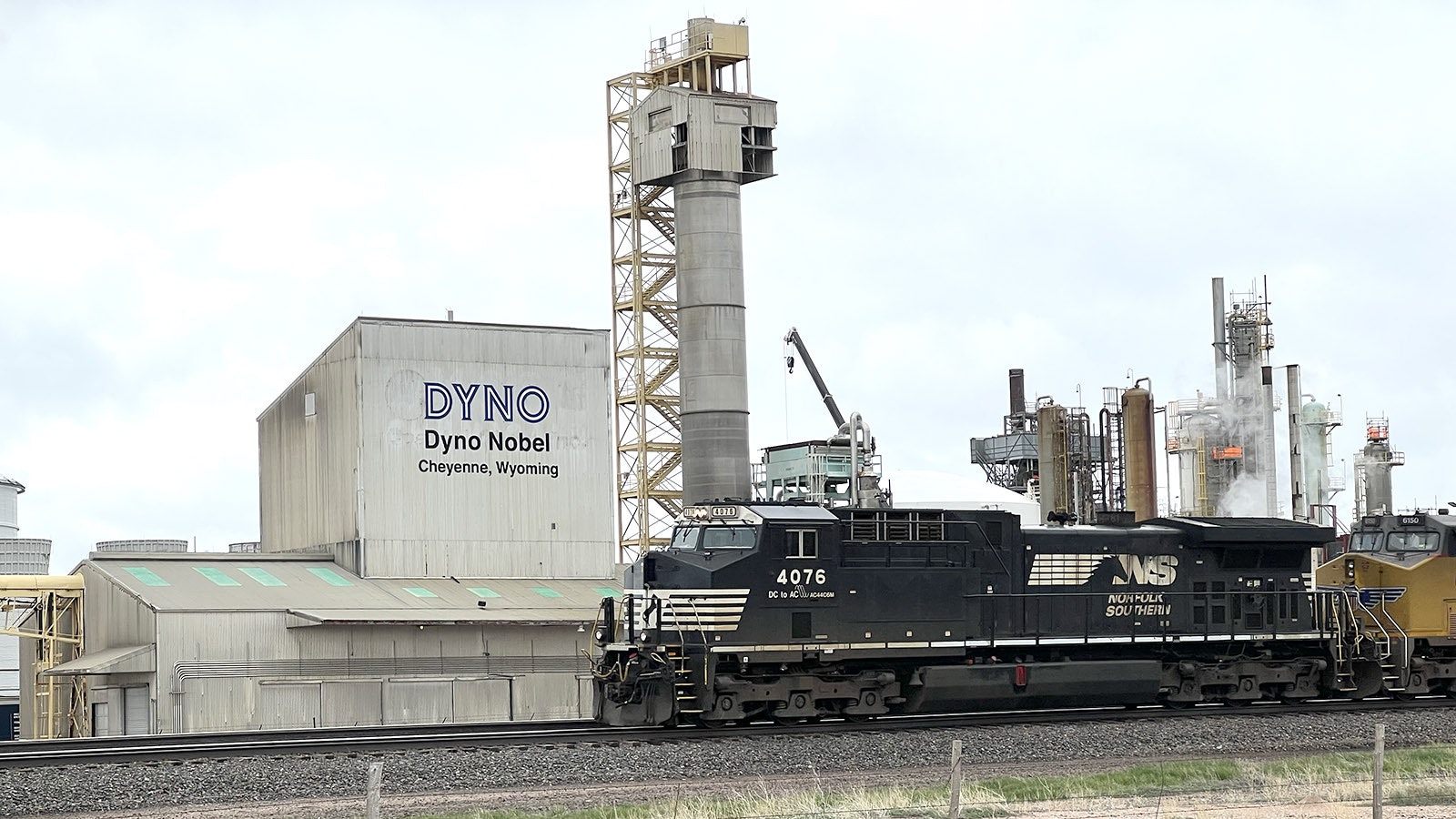Nearly a year after 30 tons of ammonium nitrate went missing on a train ride from Cheyenne to an old salt mining town in California, the Federal Railroad Administration (FRA) is still investigating where and how the explosive fertilizer vanished.
“The FRA investigation is still being finalized,” a spokesman with the U.S. Department of Transportation’s FRA told Cowboy State Daily in an emailed statement.
The spokesman also wrote that the findings in the report are “pending potential enforcement actions.”
The spokesman did not elaborate on the enforcement actions, who they may be issued for and how serious they might be.
"FRA's investigation is focused on both the railroad and the shipper," the agency told Cowboy State Daily. "Enforcement action would be taken against any party which violated rail safety regulations."
A rail car carrying 30 tons of ammonium nitrate, a chemical used in explosives in Wyoming coal mines, left Cheyenne’s Dyno Nobel factory on the western edge of the city April 12, 2023.
When the Union Pacific train carrying the load of fertilizer more than 1,000 miles arrived in Saltdale, California, 13 days later, the rail car carrying the fertilizer was empty.
The loss of the fertilizer is concerning to federal authorities.
At mines and other industrial sites, the ammonia nitrate is mixed with other chemicals, such as diesel fuel, and then blasting caps are used to make it explode.
Ammonium nitrate is primarily used as a fertilizer, but it also was a key chemical used in the bomb that terrorist Timothy McVeigh built to blow up a federal building in Oklahoma City in 1995.
Unintentional Release
The FRA statement to Cowboy State Daily indicates that the FRA conducted a hazmat incident investigation, classified as a “non-accident release,” and determined that a faulty bottom outlet on a covered hopper car caused the “unintentional release” of ammonium nitrate fertilizer pellets, also known as prills.
The release of the pellets happened while the shipment was in transit from Dyno Nobel to California. Initial media reports stated that the seals on the rail car were still intact when it arrived in Saltdale.
The FRA stated that the fertilizer was noticed missing when the rail car arrived in Mojave, California, about 35 miles southwest of Saltdale.
A non-accident release occurs when a hazardous material is unintentionally released during transportation, encompassing activities like loading and unloading while under railroad control, but excluding incidents like derailments or collisions, according to the Association of American Railroads.
These releases can result from leaks, splashes or other malfunctions in valves, fittings or tank shells, as well as the venting of non-atmospheric gases through safety relief mechanisms.
All Signs Point To Leak
Dyno Nobel made its report May 10, 2023, to the federal National Response Center.
A spokeswoman for Dyno Nobel could not immediately comment on the investigation.
Mike Jaixen, a spokesman for the Union Pacific, told Cowboy State Daily in an email that the railroad had completed its investigation of the incident and fully cooperated with authorities.
“As we have previously indicated, all the available evidence suggests this was a leak that occurred over the course of transportation from origin to destination,” Jaixen said. “Such a leak is unlikely to pose any risk to public health or the environment.”
He also said that Union Pacific has no reason to believe any criminal or otherwise malicious activity took place during transport.
Vikki Migoya, a public affairs officer with the FBI’s Denver field office, said that her agency is aware of the situation.
“Any updates on that incident will come from the companies involved,” Migoya said.
Earlier this month, Dyno Nobel was fined nearly $400,000 by the U.S Environmental Protection Agency for safety violations at its Cheyenne plant unrelated to the loss of fertilizer last year.
Dyno Nobel, which is a business unit of Australian-based industrial chemicals giant Incitec Pivot Ltd., agreed to pay a $394,906 civil administrative penalty as part of the company’s violations of the Clean Air Act related to chemical accident prevention practices at the facility.
Four years ago, Incitec Pivot opted to not sell Dyno Nobel following a strategic review of the business.
In fiscal 2023, Dyno Nobel Americas saw its profitably fall 23%, according to an Incitec securities filing in Australia.
Pat Maio can be reached at pat@cowboystatedaily.com.





